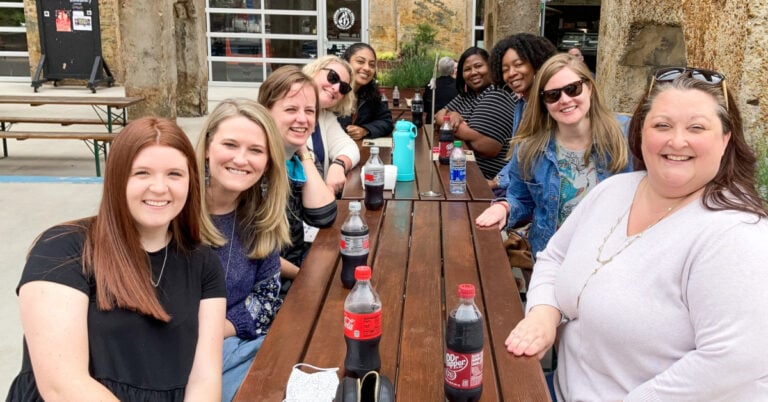The pandemic didn’t create the workplace connection issues we see today. But it did bring them to the spotlight. One of the many questions, post pandemic, is how can we build (and rebuild) trust in a skeptical world? How can we embrace a new era of workplace connection and community in a post-COVID world?
The COVID Era Shift on Workplace Connection
For human resources teams, the COVID era ushered in a seismic shift of operation and employee relations. More foundational changes occurred within the last three years than in the last three decades combined. Since March of 2020 the norms of what keep us connected and communal have shifted and in some cases, unraveled. Remote and hybrid roles changed the boundaries of how and where employees can work. Though flexibility via remote working is key for many managerial employees, labor intensive and line worker positions require a ‘physical presence’ to operate.

Being able to work with flexibility of time and location is not a post pandemic right but rather, a privilege. Remote work, previously a necessity, now creates a divide between those who can ‘zoom in’ and those who cannot. Interaction must be in person in order to create security, awareness, and support for those being served. Being physically connected to the work is foundational to the job itself. But with the remote shift of work came new and uncharted challenges for employees. Many depended on office routine, connection, and every day socialization to feel motivated, valued, and heard.
How Do We Build Workplace Connection and Community?
Now more than ever, as people are working from home, in different cities and/or from different offices there is a greater need for valuable and meaningful interaction and connection. As the workplace continues to evolve, the question for Crossnore is clear. How do we build genuine points of connection that are meaningful, inspiring, and supportive to our employee base when staff are decentralized, logged in, and often physically disconnected? When staff feel supported and have opportunities to build meaningful work relationships there is a greater sense of belonging.

One way to focus on affirming remote employee experiences is to focus on the three P’s. Proximity: Aligning thoughts, strategies and concepts so staff feel they are on the same page and speaking the same team language. Productivity: Frequent and supportive contact from one’s manager, empowering growth and listening to the worker’s needs. And Positivity: recognized affirmations and acknowledging a sense of purpose to build resilience among staff and thus, foster a more impactful agency culture.
Managed Flexibility and Structured Autonomy
Here at Crossnore we believe that managed flexibility and structured autonomy play into our staff’s strengths and personalities. Furthermore, our company-wide long-standing practice of the Sanctuary Model helps to focus, inform, and protect the folks we serve and equally serve the people and systems who provide trauma-informed care. Key to this concept is ‘leaning in’ to empathy. We need to be inquisitive without judgment. We need to connect with our staff and community to see the world through their eyes.

Honest and Open Communication
A pillar of the Sanctuary model is honest and open communication with a supportive approach. Meetings allocate time and space for a community meeting. This is a time for staff to express their emotional presence, state their immediate ‘meeting goals’, and affirm who they will look to for emotional and/or logistical support. Additionally, leadership meetings allow time for grounding exercises, team building activities, and affirmations/kudos wrap ups.
Now more than ever, building, maintaining, and enhancing work relationships is key to retention, recruitment and ultimately, a successful motivated workforce. Agency decisions, as Sonja Pemberton, self described transformational catalyst and inclusion strategist, states, “either build trust among the workforce or break it.” We at Crossnore understand that not one size fits all. And we continue to evolve an embracing workplace culture where all will hopefully feel valued and energized by the team work that we do. After all, when it comes to the welfare of children under our care, it takes a (healthy and connected!) village.



